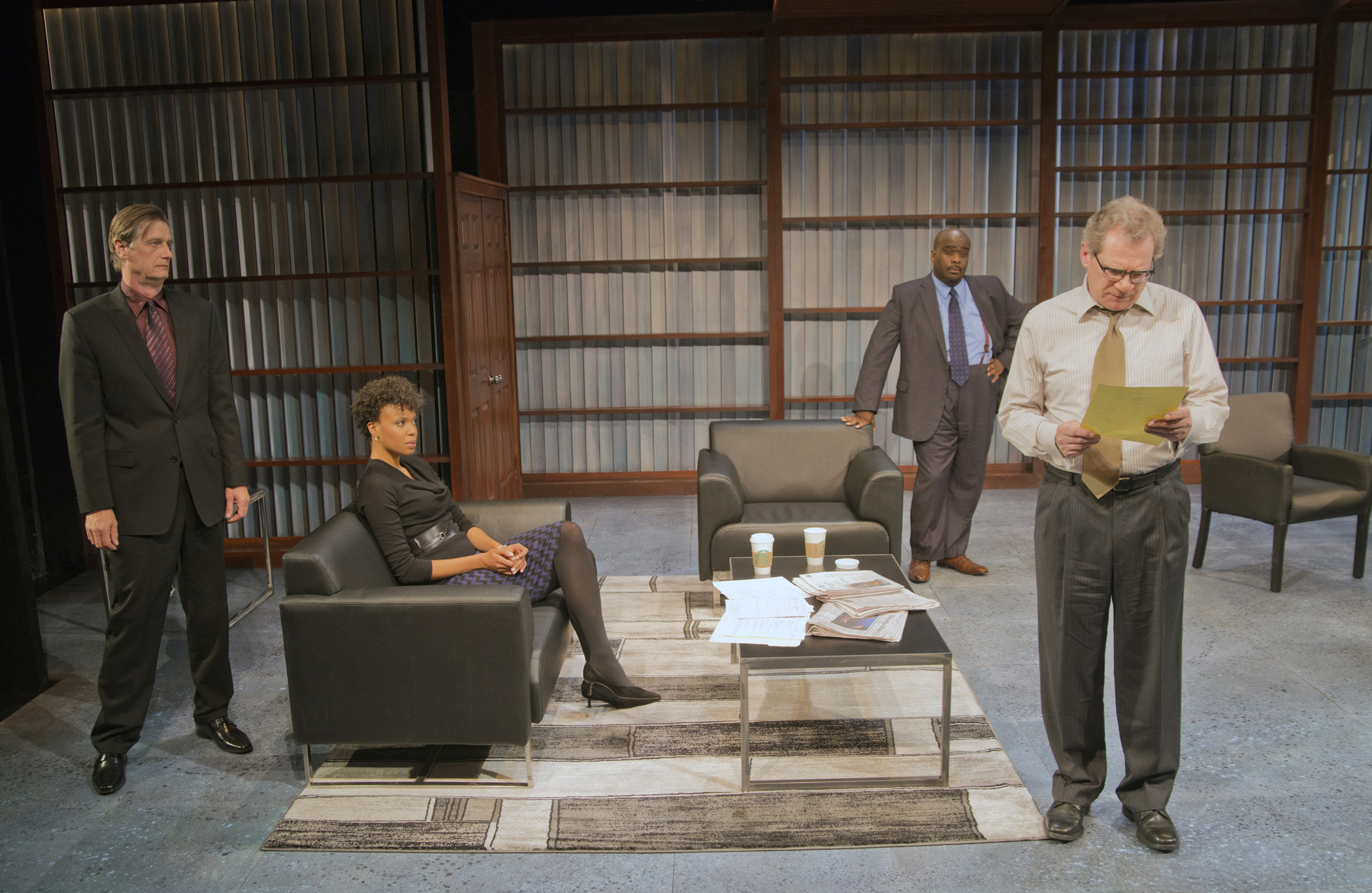by David Mamet
Directed by Robert Walsh
presented by the New Repertory Theatre
Arsenal Center for the Arts
Watertown, MA
October 14th – November 4th, 2012
New Rep Facebook Page
Review by Craig Idlebrook
(Watertown) It’s become trickier to discuss racism in the post-2008 election era than it was before. We have elected a black president, many hope to say, and that is enough.
Leave it to troublemaking playwright David Mamet to clear his throat amid the quiet in 2009 with his biting and succinct dramatic comedy, Race, now being performed by the New Repertory Theatre in Watertown. His play refuses to rest on recent racial gains, instead showing the trouble beneath the surface, the kind
that otherwise is obscured unless a police officer arrests a Harvard professor or a neighborhood watchman shoots an unarmed teen. Mamet’s script sparks necessary dialogue about an uncomfortable subject, but the flawed storyline of the play, combined with uneven execution by New Rep’s cast, misses the opportunity to create deeper understanding of inherent social inequality.
In the office of a well-established law firm, Charles Strickland (Patrick Shea), a rich and powerful man who is used to having his way, seeks help to stave off the mobs that are aligning against him after he is accused of raping a black woman. In the hours before court proceedings are set to begin, the firm’s partners and a new hire must grapple with whether they can take Charles on as their client. In their
evaluation, innocence is not nearly as important, says lawyer Jack Lawson (Ken Cheeseman), as the ability to sell a narrative of their client to the jury. The clock is ticking and the firm’s reputation is on the line, but the three must first dissect their own prejudices to confront the ugliness of this case.
The play’s title, in a way, is a red herring, as this play works best when it explores power instead of race, or more succinctly how power eludes us. Minute by minute, the character of Jack Lawson fluctuates from being the smartest guy in the room to being helplessly entangled in sexual and racial politics that could bring down his firm. As Lawson, Cheeseman pulls off these power-play somersaults admirably,
moving with ease as he shows the growing discomfort of the lawyer. At time, Charles’ panic is tangible on stage as well, and we squirm as an audience as a titan of society tries to cajole and bargain and bluster his way out of a trap. Shea is more successful earlier in the play than later, but still manages to infuse Charles with a down-home creepiness, not unlike David Letterman after he admitted his affair with a staffer.
But too often, the script eludes the cast, as if it is galloping away and the actors were trying to keep hold. Mamet’s dialogue isn’t easy, swinging quickly from the pedantic to the personal in the space of a minute. Director Robert Walsh has clearly assembled a good cast, but not prepared them well enough to embrace
the script whole-heartedly. The actors struggle in the beginning to spit out the lines while maintaining the necessary pace, and they struggle in the end to make the plot twists believable. But it is what comes in the middle which redeems this production, as they build onstage an inescapable feeling that we are all climbing over each other on a ladder, and our hold is always as tenuous as our neighbor’s.

